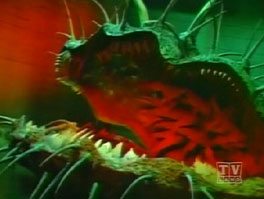Seriously.
A study came out recently about non-native zebra and quagga mussels literally killing the food chain in lakes Michigan and Huron. And I quote:
Two closely related species of mussels — the zebra and quagga — [are] stripping the lakes of their life-supporting algae, resulting in a remarkable ecological transformation and threatening the multibillion-dollar U.S. commercial and recreational Great Lakes fisheries.
Same ol’ media hysteria? Doesn’t sound like it:
By filtering out the algae, the mussels are robbing other organisms of the food they need to survive. Of particular concern is the plight of Diporeia, a tiny shrimplike creature that was one of the pillars supporting the base of the Great Lakes food web.
Nearly every fish species in the Great Lakes relies on Diporeia at some point in its life cycle. But Diporiea populations have crashed in lakes Michigan and Huron, and the change is already impacting Great Lakes commercial fisheries and the sport-fishing enterprise.
“The big question now is how large the quagga mussel population will get,” [a researcher] said. “And when it gets as big as it can get, will it stay at that level or will it die back because it has decimated its own food supply? We don’t really know what to expect at this point.”
Sounds like the evil quagga is the bigger concern:
Though the zebra mussel is better known to the public, over the past decade it has largely been overshadowed by the quagga mussel, which can thrive far from shore in deep, mud-bottomed waters. Each of the fingernail-size quagga mussels filter about a quart of water a day, and billions of them now blanket the bottoms of lakes Michigan and Huron down to depths of nearly 400 feet.
“For years, all the talk was about the zebra mussels. And then its close cousin comes in, the little quagga mussel, and wreaks even more havoc on these huge offshore systems,” said [a NOAA researcher].
“These changes are unprecedented,” he said. “In terms of algal abundance and water clarity, lakes Michigan and Huron are now similar to Lake Superior.”
Bottom line here is that no one knows what will happen or how fast. But if the base of the food chain is being eaten away that much and that fast, something is bound to happen. Probably something bad for us bassers.


























tumblebug
April 29, 2011 at 9:53 am
The silver bullet is in the second article on this link.
http://www.nysm.nysed.gov/research_collections/research/labs/fieldlab/researchsuccess/index.html